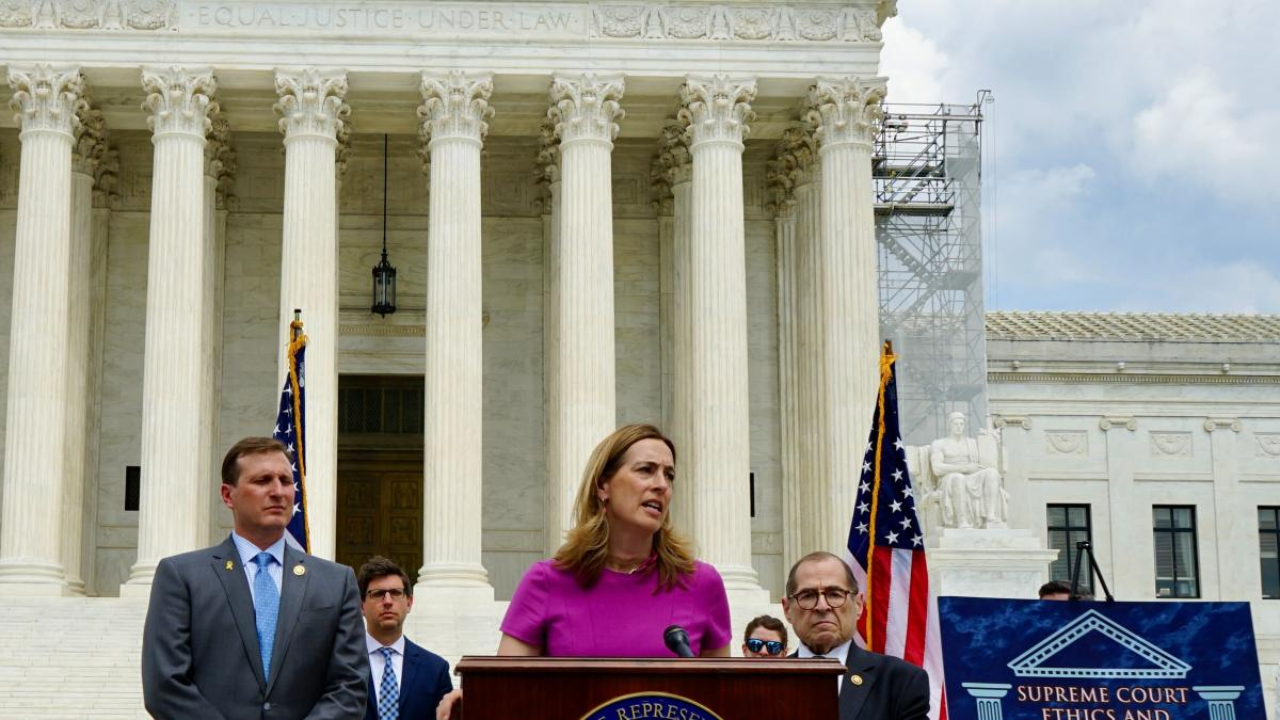
Introduction
The judiciary holds a pivotal place in democratic societies as the guardian of justice, fairness, and constitutional rights. However, growing public skepticism and a perceived erosion of credibility have triggered a critical need to rebuild trust in judicial institutions. The answer lies in reinforcing ethical judicial conduct, ensuring accountability, impartiality, and integrity in the justice delivery process. This article explores the path to restoring public trust through ethical judicial behavior, highlighting the principles, challenges, and actionable reforms required.
Why Judicial Ethics Matter
Judicial ethics encompass a broad range of standards that govern the behavior of judges both in and outside the courtroom. These ethics are foundational to the public’s perception of fairness in the legal system.
Key Ethical Principles:
- Impartiality: Judges must remain neutral, avoiding favoritism or bias.
- Integrity: Upholding honesty in decisions and conduct.
- Accountability: Being answerable to legal standards and public scrutiny.
- Transparency: Ensuring clear reasoning in rulings and open procedures.
- Independence: Resisting influence from political, personal, or financial pressures.
Challenges Undermining Judicial Trust
Despite the judiciary’s intended role as a neutral arbiter, several modern-day issues have diminished its reputation in public eyes.
- Political Interference: Perceived or real political pressure can tarnish impartiality.
- Corruption Allegations: Cases of bribery or undue influence erode credibility.
- Lack of Transparency: Closed-door decisions or unclear verdicts fuel suspicion.
- Delays in Justice: Prolonged trials and backlogs reduce confidence in system efficiency.
- Public Misinformation: Misinterpretations via media or social platforms skew public perception.
Strategies for Restoring Trust Through Ethical Reform
- Ethical Training and Orientation
- Regular training programs on updated judicial codes of conduct.
- Special focus on unconscious bias, conflict of interest, and accountability.
- Clear and Enforceable Codes of Ethics
- Countries must implement well-defined and accessible judicial ethics guidelines.
- Enforcement bodies should be empowered to investigate and act on violations.
- Transparent Disciplinary Mechanisms
- Independent judicial councils can investigate misconduct.
- Periodic public reporting on ethical investigations builds institutional transparency.
- Enhanced Public Engagement
- Open courtrooms, livestreamed hearings, and simplified verdict explanations can foster better understanding.
- Judicial outreach programs in schools and communities promote civic trust.
- Use of Technology for Integrity
- Digital courtrooms and AI-powered case tracking systems can reduce human interference and bias.
- Blockchain for judgment records adds auditability and tamper-resistance.
Global Best Practices in Ethical Judicial Conduct
| Country | Ethical Initiative | Outcome |
|---|---|---|
| Canada | Judicial Ethics Advisory Committee | Clear guidance for judges on conduct |
| India | Restatement of Values of Judicial Life (1997) | Standardized ethical framework |
| USA | Code of Conduct for United States Judges | Nationwide ethics policy |
| UK | Judicial Conduct Investigations Office (JCIO) | Transparent complaint mechanism |
| Kenya | Vetting Board for Judges and Magistrates | Accountability through re-evaluation |
Overview Table: Key Areas and Solutions
| Challenge | Impact | Ethical Solution | Implementation Strategy | Expected Result |
|---|---|---|---|---|
| Political interference | Erodes impartiality | Judicial independence | Legal safeguards against outside pressure | Fair, unbiased rulings |
| Corruption and bribery | Loss of credibility | Zero-tolerance policies | Robust monitoring and reporting systems | Improved judicial integrity |
| Lack of transparency | Public suspicion | Open proceedings | Use of technology for accessibility | Enhanced public confidence |
| Case backlogs | Justice delayed = denied | Ethics in workload management | Digitization and strict scheduling | Faster and fairer judgments |
| Public misunderstanding | Distrust in the system | Judicial outreach and education | Media engagement and community programs | Informed and trusting citizens |
Ethical Role Models: Leading by Example
Certain judges globally have demonstrated how integrity can inspire widespread public trust.
- Justice Ruth Bader Ginsburg (USA): Known for her disciplined approach, transparency, and independence, she became a symbol of trust.
- Justice V.R. Krishna Iyer (India): Advocated for judicial activism with compassion and high ethical standards.
- Judge Albie Sachs (South Africa): Fought for justice during apartheid and stood for fairness and dignity in all rulings.
The Road Ahead
Restoring public trust in the judiciary is not an overnight task. It requires systemic reform and cultural transformation within judicial institutions. Strong ethical frameworks backed by transparency, accountability, and a dedication to public service can reshape the public image of the judiciary. Judges must not only be fair but be seen as fair—because perception, in law, is as powerful as reality.
Top 3 One-Line FAQs
Q1: Why is ethical conduct important for judges?
A: Ethical conduct ensures impartial, fair, and credible justice delivery, reinforcing public trust.
Q2: How can courts be more transparent?
A: By livestreaming proceedings, simplifying legal language, and publicly sharing verdicts and rationales.
Q3: What role does public perception play in judicial trust?
A: Public perception shapes confidence in legal institutions—ethical conduct bridges the gap between legal fairness and public belief.

